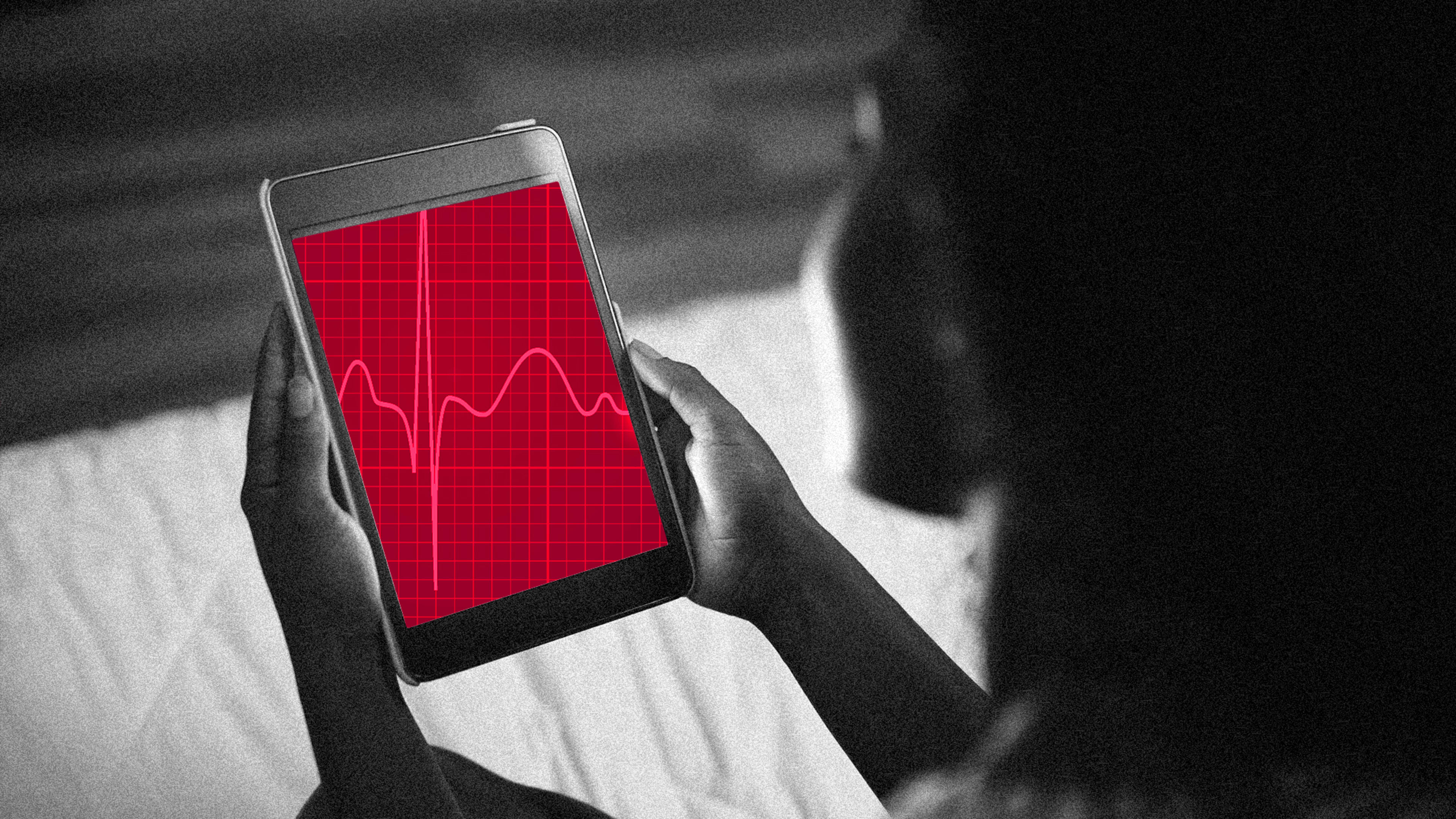In Las Vegas, under the din of the Consumer Electronics Show, a company called Binah.ai is testing the stress levels of passerby. One of them, Jared Newman, a reporter for Fast Company, stopped to stare into the lens of the company’s tablet. After 10 seconds, the interface had estimated his heart rate and then his stress level. “It said my stress level was high, which checks out!” he told me.
Israel-based Binah.ai is one of several companies that are using artificial intelligence to gauge a bevy of vital signals over video. The technology is part of a big push to move healthcare out of the doctor’s office and into the home through telemedicine. Binah.ai currently tests for heart rate, stress level, oxygen saturation, respiration, and heart rate variability. The company also has plans to eventually add blood pressure to its roster of services.
How can an algorithm detect all of these vital signs through a video? Binah.ai has implemented a technology called plethysmography, which uses cameras to detect slight changes in facial coloring that indicate pulse. Though Binah.ai declined to explain how it detects the other vital signs due to pending patents, external studies on plethysmography provide evidence that these slight facial color changes can also indicate breathing and oxygen levels.
Researchers around the world have been investigating plethysmography for more than a decade, and it is also used in another growing field called “affective computing,” which uses artificial intelligence to understand a person’s emotional state as a diagnostic tool or as a way for computers to respond in more emotionally intelligent ways. There are no published studies attesting to the accuracy of Binah.ai’s technology, though the company claims prospective clients have tested it against existing medical devices that measure pulse and say it is as accurate. Past studies have suggested that a controlled lighting environment and clear faces (i.e., no beards, glasses, or other obscuring facial adornments) have lead to the best results.
So far, Binah.ai’s technology has been embedded into an app from Japanese insurance agency Sompo that allows drivers to monitor their stress levels while driving. But the company says its primary goal is to bring Binah to traditional healthcare spaces.
“Imagine lining up at a kiosk in a hospital where you can have everything measured without being touched at all,” says Mona Popilian-Yona, a spokesperson for Binah.ai.
Popilian-Yona says that Binah.ai’s software could cut down on intake times at hospitals by getting basic vital information ahead of an in-person appointment with a nurse or physician. Another way she anticipates the technology being used is through telehealth doctor visits over video.
Binah.ai has submitted its technology for review by the Food and Drug Administration and is currently awaiting approval. In the mean time, the company says that several healthcare institutions are testing its algorithms. Binah.ai also has plans to release a consumer-facing app in March that would give anyone the ability to test their vitals and stress. Popilian-Yona says the company is still figuring out a pricing model, but that it will charge for this service. The app will give customers the option to not store any of their personal data; if users do want to see trends of their data, the app will only save their vitals results, not any images or video.
Other companies are also planning to launch similar technology this year. Another company, Neurodata Lab, based in Moscow, launched its heart-rate detection video technology as a demo online last year. The company plans to make it publicly available inside of a partner’s healthcare-focused app in the next few months. A spokesperson for Neurodata Lab says that its pulse detection is as good as current pulse-detecting wrist bands on the market. She says that pulse and other physiological data can show if a person is stressed, anxious, and or experiencing other emotional states.
Binah.ai has attracted attention beyond from the medical community. Law enforcement believes it might be useful inside of interrogations. Currently, there are no rules around the use of this particular technology. As is the case with polygraphs, police may not be able to force a suspect to participate in facial scans. But the laws around biological data that’s been collected outside of HIPAA-governed healthcare institutions are murky, and there aren’t standards for how that data should be handled and protected. For that reason, companies like Binah.ai and Neurodata Lab largely leave liability for the data their algorithms collect in the hands of their clients.
Popilian-Yona insists that her company’s greatest interest is in providing tools for doctors, not police officers. “We want to put this in the hands of the healthcare providers,” she says.
Recognize your brand’s excellence by applying to this year’s Brands That Matter Awards before the early-rate deadline, May 3.
